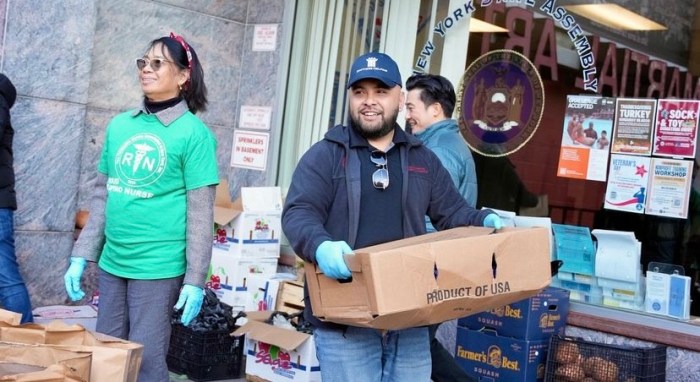By Prem Calvin Prashad
Though most Queens residents have felt the impact of the recession, not all are affected equally. The South Asian community, especially new immigrants, have not fared well in this economic climate.
Poverty rates, as well as the high school dropout rate, are on the rise among South Asians. Foreclosures plague the community as well. Even established professionals in finance and other related fields face difficulties transitioning to a modern workforce, leading to rampant underemployment of otherwise skilled workers.
Chhaya Community Development Corp., based in Jackson Heights, launched a workforce development program in response to unemployment and underemployment in the South Asian community. Chhaya’s aim is to provide the community with counseling and job training, helping many to recognize their potential and develop skills necessary to compete in the job market.
I spoke with Seema Agnani, executive director of Chhaya, and Imtiaz Hossain, career development and employment specialist, on South Asian poverty in Queens, as well as the progress of the program.
Most challenges that entrepreneurs and business owners face are due in large part to the fact that cash-based industries, including cabs, restaurants, motels and convenience stores depend on a thriving economy.
Agnani noted that “low-wage workers … working for small businesses in the community, when their income streams go down, [their] workers are earning less.”
Agnani went on to explain the presence of the “informal economy,” which are jobs that cannot be tracked by standard unemployment metrics. Most labor in the informal economy is cash-based and revolves around services.
Underemployment of otherwise skilled labor is also a feature of the informal economy. A report released in 2012 by Chhaya, in conjunction with DataCenter, found that nearly half of respondents surveyed indicated they held a college degree, yet only 8 percent actually worked in a professional or technical job.
Hossain noted that an understanding of the job market is paramount for job seekers. Many recent immigrants or children of immigrants lack, due to cultural or social barriers, the basic tools to search for a job. This includes formatting a résumé and succeeding at an interview. An important facet of the program is introducing or acclimating those who are starting or re-entering the job market.
A large component of the program involves helping South Asian women, many of whom are new to the workforce. As a result, Hossain said, many of these women have “stranded skills,” meaning that while they may be qualified on the most basic level for many positions, a lack of understanding on how to apply those skills or present them to a potential employer prevents them from success in finding careers.
All who seek help with their problems will have an individualized intake done to determine how the program can best suit their needs. This sort of individualized attention, usually available in applicants’ native languages, is an invaluable asset in helping them express their needs as well as their capabilities.
This is notoriously absent from other broad-reaching workforce initiatives that lack attentiveness and cultural flexibility.
For any Queens resident who would like an evaluation, contact Chhaya, at 37-43 77th St. in Jackson Heights, at 718-478 3848 to schedule an intake session. The program will then best be able to determine how it can meet your needs.

































